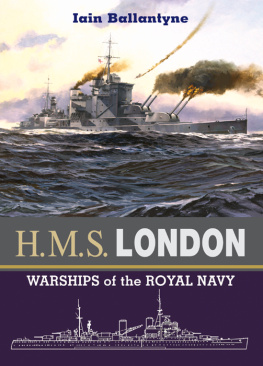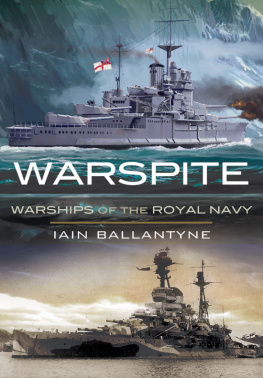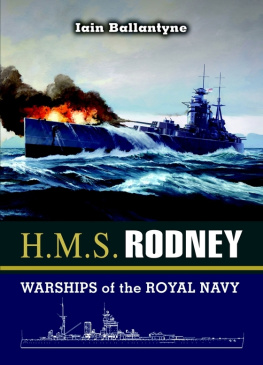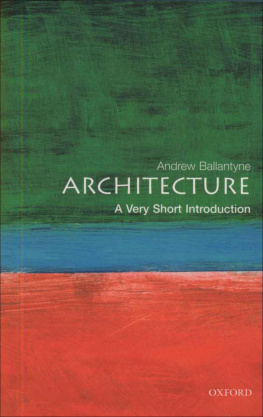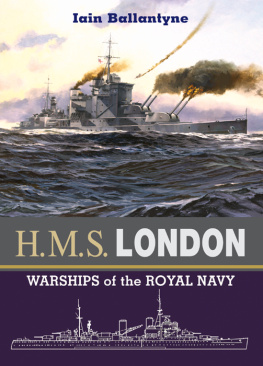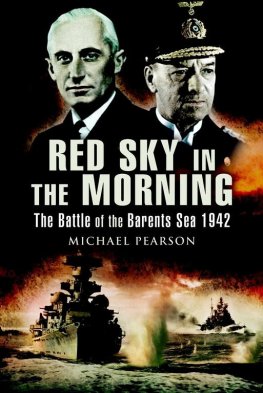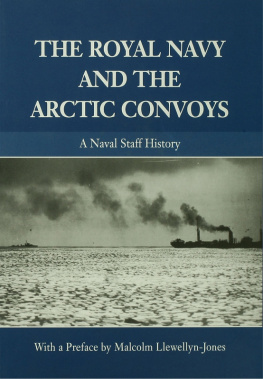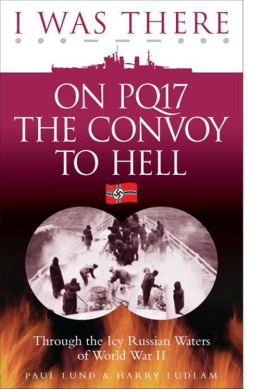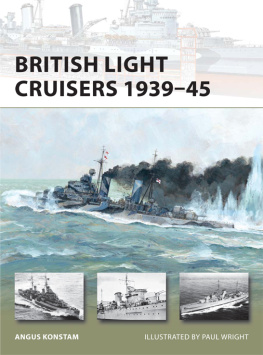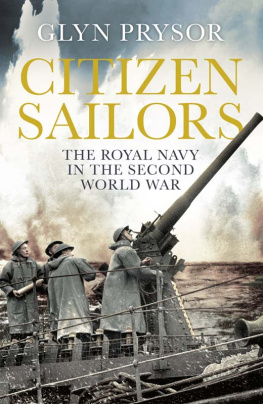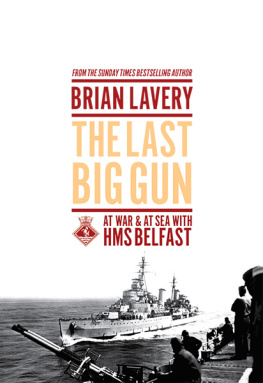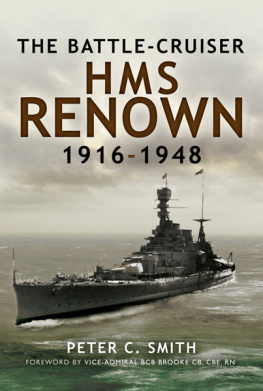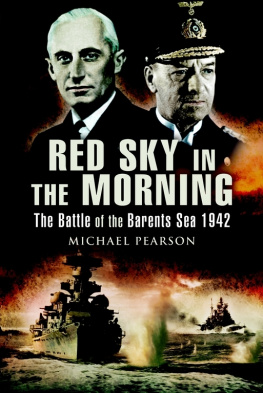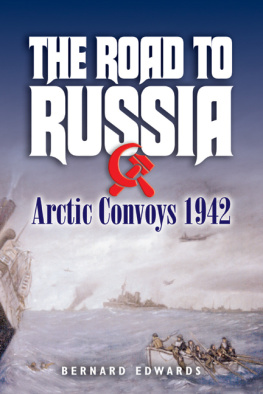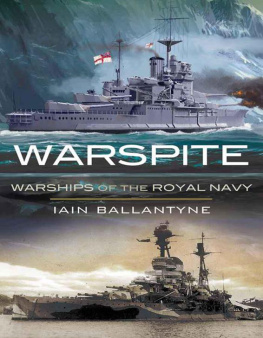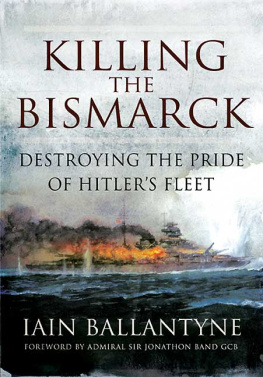
This book is for all those who have found that just wars sometimes fall short of high expectations.
First published in Great Britain in 2003 by Leo Cooper
an imprint of Pen & Sword Books Limited
47 Church Street, Barnsley, South Yorkshire S70 2AS
Copyright Iain Ballantyne, 2003
For up-to-date information on other titles produced under the Pen & Sword imprint, please telephone or write to:
Pen & Sword Books Limited
FREEPOST
47 Church Street
Barnsley
South Yorkshire
S70 2BR
Telephone (24 hours): 01226 734555
E-mail:
Web site: www.pen-and-sword.co.uk
ISBN 0-85052-843-7
ISBN 9781783400294 (epub)
ISBN 9781783400034 (prc)
All rights reserved. No part of this publication may be reproduced, stored in a retrieval system, or transmitted, in any form or by any means, electronic, mechanical, photocopying, recording or otherwise, without prior permission from the publishers. This book is sold subject to the condition that it shall not, by way of trade or otherwise, be lent, resold, hired out, or otherwise circulated without the publisher's prior consent in any form of binding or cover other than that in which it is published and without a similiar condition, including this condition, being imposed on the subsequent purchaser.
British Library Cataloguing in Publication Data
Printed by CPI UK
Contents
HMS LONDON Battle Honours 16521991
Kentish Knock 1652, Gabbard 1653, Scheveningen 1653, St James Day Fight 1666, Sole Bay 1672, Schooneveld 1673, Texel 1673, Barfleur 1692, Chesapeake 1781, le de Croix 1795, Copenhagen 1801, Marengo 1806, Crimea 18545, Dardanelles 1915, Atlantic 1941, Arctic 194143, Kuwait 1991.
A Note on Ships & Battle Honours
There is a bewildering, and sometimes conflicting, array of information on the Londons of the British fleet and their battle honours. The warships included in this book have been selected using the official battle honours attributed to the name HMS London as a guide, combined with the Royal Navy's own definition of what ships were the true bearers of the title. I have differed from some naval records regarding the Londons of the early seventeenth century, by considering the London of 1636 as the first fully fledged English warship to bear the name, rather than the vessel of 1656 (which I consider to be the third London).
When it comes to battle honours, Lowestoft 1665 in fact involved a hired merchant vessel called London. She was not the official bearer of the title HMS London, as that vessel was under construction at the time. Therefore the honour, Lowestoft 1665, cannot be attributed to HMS London.
Confusion also arises when it comes to the proper names of battles in the Anglo-Dutch naval wars. The two clashes at Schooneveld and Texel in 1673 are sometimes merged under the single battle honour, De Ruyter 1673. Some lists of London battle honours give alternative names for the three main Anglo-Dutch clashes of 165253. In this book North Foreland (September 1652) is referred to by the generally accepted title Kentish Knock, while Lowestoft (June 1653) is Gabbard and Camperdown (July 1653) is Scheveningen.
Hopefully, I have resolved these issues satisfactorily.
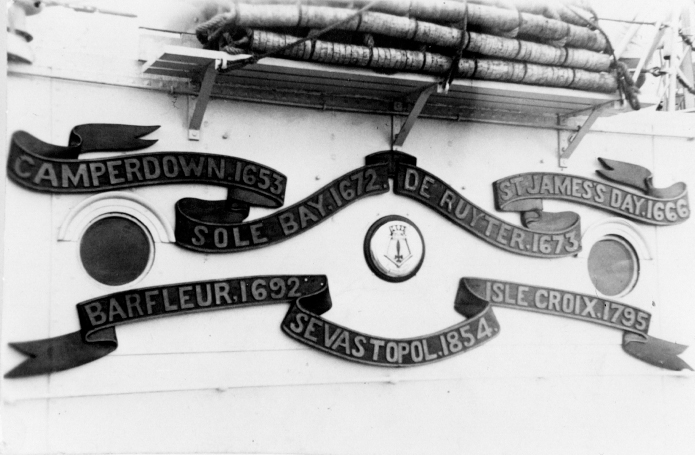
HMS London's battle honours, as displayed on the cruiser in the late 1940s. This appears to be a selection of highlights, with Camperdown instead of Scheveningen and De Ruyter used as an alternative to Schooneveld and Texel. Peter Seaborn Collection.
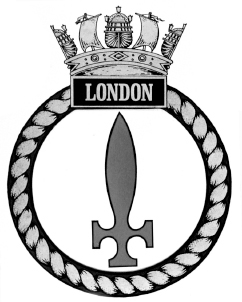
HMS London's ship's badge.
Image courtesy of T. Elliott.
ACKNOWLEDGEMENTS
In piecing together the story of HMS London I am indebted to a large cast of people who have given me an incredible amount of support as well as practical assistance. Mike Overton very generously allowed me to use material downloaded from a web site that he has created in honour of the cruiser HMS London ( http://freespace.virgin.net/michael.overton1/hms.htm ).
Mike's father, Derek, served in HMS London during the Yangtze Incident of 1949 and contributed via his son. I am in their debt.
Through Mike I was put in touch with the HMS London 194749 Association. Its members deserve my special thanks for loaning images from their private collections, allowing me to interview them and contributing in other ways, especially Don Chidlow, John Parker, Christopher Parker-Jervis and Neil Stewart. Frederick G. Harwood, who was decorated by King George VI with the Distinguished Service Medal for his courage and endurance under fire during the Yangtze Incident, also contributed but sadly died before publication. Another casualty of time was Benny Goodman, who made some valuable contributions to the chapters on the Second World War, but unfortunately passed away in the late summer of 2002.
Alan J. Howlett, whose brother served in London during the same 194749 commission has forwarded a number of images to me and also deserves thanks. Captain Tommy Catlow RN (Retd.) mailed me a copy of his excellent book, A Sailor's Survival, a much appreciated gift that considerably enhanced the texture of .
Bill Jacobs provided two key images via Mike Overton who also put me in touch with others who served in HMS London during the Second World War. Graham Bramley, Norman Brigden, Gordon Bruty and Ted Huke all deserve my thanks for allowing me to interview them and giving material from their private collections. Brian Whitcombe whose father, Alexander, served in HMS Cumberland while she was in company with the London during the bombardment of Car Nicobar in 1944, deserves thanks for providing a dramatic image of that event. Research on the web and two adverts for contributions to the book in the British monthly naval newspaper Navy News yielded a flurry of responses from around the world, either via e-mail or letters. Articles in Legion (the magazine of the British Legion) and the Evening Herald, Plymouth, also sparked help from those who served in the last three Londons, or had some other connection with the warships. My gratitude goes to the following who responded to the adverts and articles, providing their memories and, in several cases, key photographs and original documents from their collections: David Atkins, Bob Boynton, Charlie Breach, Casper Cardwell, Douglas Clark, C. Clifford, Eddie Cowling, Charles Cox, Yorkie Cunningham, Fred Dale, Ted Davis, Bryan Dunster, Walter Eglinton, Charlie Ellis, C.W. Ellis, Malcolm Farmer, Ken Fleming, David Gilchrist, R.D. Houghton, Ian Inskip, Patrick Lambert, Warwick Luke, Mac McComb, Gordon Moores, Mike North, Brian Parker, David Parker, Douglas Parker, Gordon Perry, Terry Potton, Albert Price, John Reekie, Rod Saul, Peter Seaborn, Martin Sykes, Ken Tamon, Martin Weaver, Bill West, Harry Williams and Waldie Willing.
John Cunningham and Victor Parker who sailed in London as young Army officers in the 1940s played their part in this maritime story with their recollections and photographs.
The eyewitness accounts of serving members of the Royal Navy were invaluable in bringing the story of the last London to life. Despite his busy schedule as Assistant Chief of the Naval Staff, Rear Admiral Tim McClement made himself available for an interview about his time as the warship's Commanding Officer and also provided photographs and other material from his private papers. I am extremely grateful to Rear Admiral McClement for his vital input.
Next page
